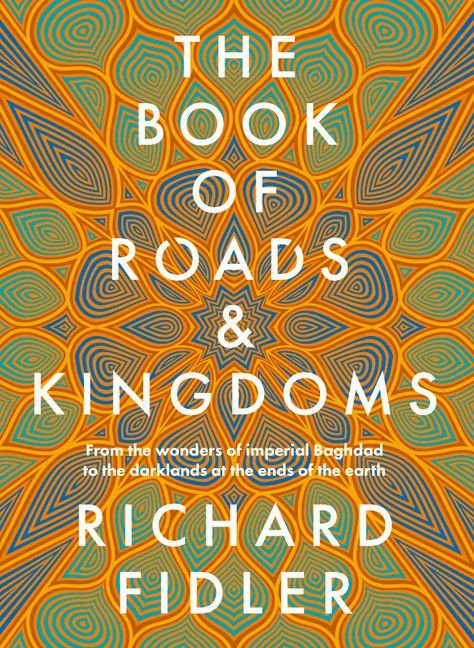Do you have any writing rituals?
Not rituals as such other than getting up early in the morning, needing a quiet house, have a little – I literally have garret that I write in at the moment. I have a garret that’s in the attic of the house we live in and I have to climb up a ladder to get into it. But it’s an electric ladder so I just press a button, and it closes and I can hide from my whole family. Yeah! It’s great. First I thought when we got this house: ‘Ugh this is going to be a real imposition every time’, but now I love it. It’s great, being able to cut myself off from the rest of the family. And having that quiet is a really big thing for me. Having two strong cups of coffee. It’s nothing terribly remarkable, but having the quiet, the early morning, and the little place of my own that’s kind of nice. And being surrounded by other books. That’s a big thing.
What is your number one rule for writing, if you have one?
I think it is to sit still – and by that I don’t mean literally, but in my own mind – and to listen for things. I know that sounds very odd but to really listen to things. To sit there and hear the voices of what – as a history writer, hearing the voices of the things you’ve been reading, the sources you’ve been reading, they sort of talk to each other in your own head, which sounds slightly mad, but to be really alert for that, to be alert for the quieter voices, which often might have something more to say. Often they’re women’s voices, too. Particularly if you’re writing medieval history, women’s voices are often muffled and in the background but you absolutely need to listen to them because often they’re not very impressed by these impressive men you’ve been writing about. And you absolutely need to listen for that.
And the other thing you need to listen for is to hear if there’s music in your prose. I was trained as a musician so I kind of like hearing a certain kind of cadence and if I don’t have it I find it very frustrating and I think the writing’s no good. And to begin a book with a certain kind of musical flourish and end with a coda is really important to me. So, like I say, sit and listen for a bit is good.
Sometimes actually you can do that in the shower, I don’t know why, but sitting on a problem with a book and going to bed with it, and then waking up in the morning and go for a shower, if you think about it, then you get the answer. And I think these things are given to us and I think that process is quite mysterious, and it makes me happy to know that these things are like that. So many writers I know and that I’ve interviewed in the past believe that they are given these things and it’s not necessarily from within themselves. So, yes. Sitting and listening, or standing and listening, as it may be.
Speaking of listening, and of cadence -- I listened to Sagaland on audio and it was brilliant. Will you be doing the audiobook for The Book of Roads and Kingdoms, too?
I have done! It has been done, yes.
Do you know what you’re working on next?
No. I’ve got a couple of ideas that are not quite coming into shape. Two very different ideas that are not moving quite right in my head at the moment, so I might come up with something completely different. And that might torment me for a bit to be honest. Because writing this book, wasn’t the book I was planning to write. This wasn’t the one I was planning to write after The Golden Maze because normally I rely on travel, I like to go to a place and have an adventure – or have had an adventure as I have in the case of Prague – but Covid prevented me from doing that. So with this I thought – let’s write about some people who were travellers just for fun because we can’t travel at the moment, and in my mind I can go to a place I can’t physically go to which is medieval Baghdad because not a bit of it exists anymore, it was all destroyed by the Mongol armies of Hulagu Kahn, grandson of Genghis Kahn. So I couldn’t get on a plane to go there if I wanted to anyway – I could go to Baghdad I suppose, I might have been able to do that – but that Baghdad that I’ve written about here, I can’t go to anymore. So I think I might – I’ve got a couple of ideas that involve travel. And I might return to that thing where I go to a place for a reason and then write a history of that place around it.
Are you reading anything at the moment?
Yes! I was just saying, I am so late to this damned party, but I’m reading Wolf Hall. I read that essay by Hilary Mantel in the London Review of Books and I went Oh, oh that’s really good, that’s really good year that is, that’s very impressive. It was brilliant and insightful and weird. So I thought I better have a look at this Wolf Hall thing and see what all the fuss is about. And oh my god, holy crap, what a genius, what a capacious mind, that knife-like ability to cut through to the heart of things, that sense of what people are like. The way she’s overturned the historical perceptions of who Thomas Moore and who Thomas Cromwell really were. I think the whole history of that period had to be looked at again because of her deft insight. Reading some of the biographical sketches of Thomas Moore and Thomas Cromwell now, they seem hopelessly naïve after you’ve ready Wolf Hall! So I’m delighting in it, I’m reading bits out loud to my wife who’s getting annoyed with me because she says she can’t read it at the moment because she had to be reading something else for her bookclub. So she’s got to pick it up and try to catch up with me.


